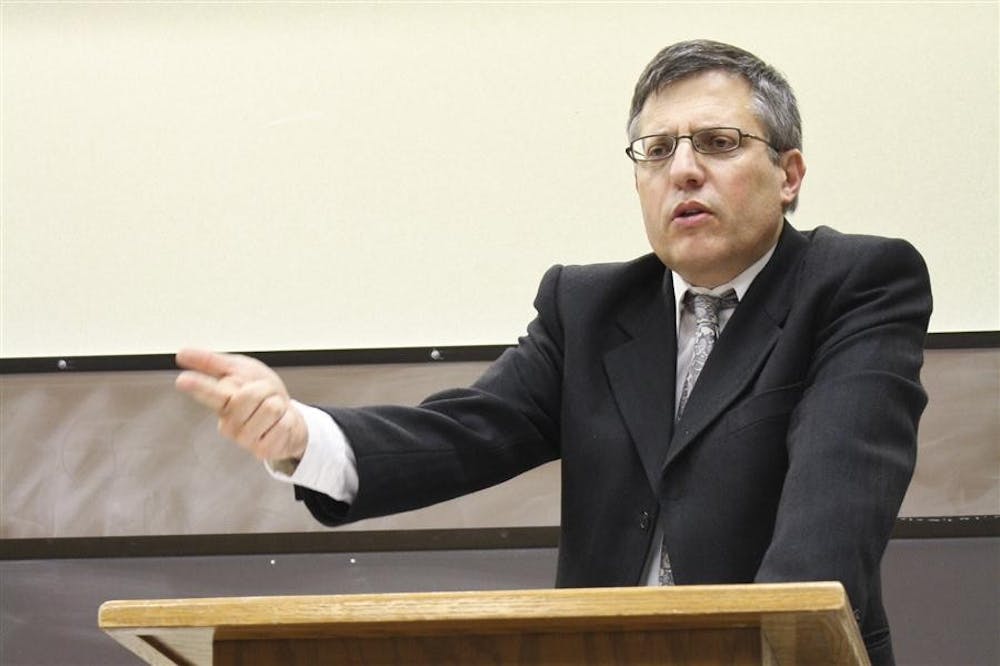Israeli scholar Mier Litvak discussed the evolution of Arab perceptions of the Holocaust in his lecture titled “Iranian Anti-Semitism and Holocaust Denial” on Thursday.
Litvak specializes in the study of the history of anti-Semitism with a focus on the Middle East. He is well-known for his award-winning book “From Empathy to Denial: Arab Responses to the Holocaust,” for which he collaborated with co-author Ester Webman. IU’s Institute for the Study of Contemporary Antisemitism sponsored the lecture.
Litvak focused the discussion on Iranian anti-Semitism, with a particular emphasis on the roots of contemporary anti-Semitic discourse in the Middle East.
“Historically, Iran has been the most intolerant state toward the Jews,” he said, pointing to the 1960s as a crucial turning point in anti-Semitism in Iran.
Litvak followed this point by discussing the 1979 Iranian Revolution, noting that “anti-Semitism became an integral component of Iranian policy.”
This policy was particularly influenced by the literature and rhetoric of former Iranian leader Ruhollah Khomeini, who wrote, “Since its inception, the Islamic government has been afflicted by the Jews.”
Khomeini gave several public lectures beginning in 1969 about what an Islamic government should look like and included consistent anti-Semitic themes in his
depiction.
With this history established, Litvak delved into contemporary anti-Semitic discourse, noting that “the past and present are undeniably intertwined.”
Throughout the past several decades, Iranian government and policies have evolved to become increasingly anti-Semitic, resulting in a nation where “senior members of the government actively practice Holocaust denial and disseminate anti-Semitic propaganda,” Litvak said.
In attempting to legitimize this denial, Iranian institutions and media have made an effort to endow the movement with what Litvak calls “scholarly respectability.” In 2006, Iranian officials convened a “Review of the Holocaust” as an opportunity for scholars to discuss the subject without the pressures of Western influence and ideology.
Following the conference, an Iranian newspaper sponsored a Holocaust cartoon contest, and scholars in the area began publishing articles and books perpetuating the denial of the Holocaust and offering various alternative explanations, including such ideas as a Nazi-Zionist collaboration or conspiracy.
Finally, Litvak pointed to current Iranian president Mahmoud Ahmadinejad as a contemporary leader of anti-Semitic movements and Holocaust denial in the Middle East. Ahmadinejad is known worldwide for his denial of the Holocaust, in particular for his comments during 2010 at a meeting of the United Nations in New York City, Litvak said.
“Practically all radical Islamic regimes today believe in a Jewish conspiracy and a perceived threat to Islam,” Litvak said. “The Iranian public is not being exposed to Western history and perspectives on the Holocaust.”
Israeli scholar discusses anti-Semitism

Get stories like this in your inbox
Subscribe





